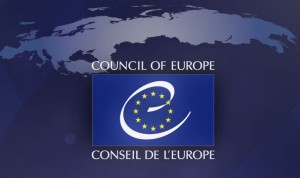- 2015/01/12
Third Opinion of the Advisory Committee on the implementation of the Framework Convention for the Protection of National Minorities (FCNM) in Lithuania

 The Third Opinion of the Advisory Committee of the Council of Europe on the implementation of the Framework Convention for the Protection of National Minorities (FCNM) in Lithuania was adopted on 28 November 2013 and published on the website of the Council of Europe on 10 October 2014. The document, which was not disclosed to the public for over a year, evaluates the progress made by Lithuania in implementing the FCNM, the treaty that Lithuania ratified without reservations on 23 March 2000, on the basis of the first and second State Reports submitted by Lithuania.
The Third Opinion of the Advisory Committee of the Council of Europe on the implementation of the Framework Convention for the Protection of National Minorities (FCNM) in Lithuania was adopted on 28 November 2013 and published on the website of the Council of Europe on 10 October 2014. The document, which was not disclosed to the public for over a year, evaluates the progress made by Lithuania in implementing the FCNM, the treaty that Lithuania ratified without reservations on 23 March 2000, on the basis of the first and second State Reports submitted by Lithuania.
In its Third Opinion, the Advisory Committee (a body of independent experts which evaluates the State Reports submitted by the State Parties of the Convention) highlights some of the most striking problems such as the lack of a comprehensive legislative framework on the protection of National Minorities. Although from 1989 to 2009 the Law on National Minorities ensured specific rights to persons belonging to national minorities in the field of education, culture and the use of minority languages in public life, this law expired in January 2010 and has not been replaced, leaving national minorities without any specific legal protection in Lithuania. The Committee expresses regret that all attempts to adopt new legislation failed repeatedly because such sensitive areas as the use of national minority languages are still highly politicized in Lithuania. Furthermore, the misinterpretation of the FCNM by the State Language Commission resulted in unfavourable opinion on the latest draft law on national minorities that was submitted for inter-institutional consultation to the Seimas in October 2013. In its Third Opinion, the Advisory Committee “urges Lithuania” to comply with adopting a coherent legal framework for the protection of minority rights (and comply with Article 3 of FCNM).
Education (Article 10 of FCNM) is the second field where the Advisory Committee urges Lithuania to take “immediate action”. According to the Committee, Lithuania should ensure that schools – in which national minority languages are the languages of instruction – are adequately prepared for the implementation of the latest educational reform (2011). The Committee states that the recent Education reform that unified the Lithuanian language exam and withdrew the national minority languages exam from the list of compulsory exams has put national minority high school graduates in a disadvantageous position, and one that is incompatible with the FCNM. The Committee also points out that alternative schooling (such as additional courses, Saturday and Sunday schools) must only complement, and not replace, national minority languages in the public education system. Furthermore, alternative schooling (considered by Lithuania as an adequate way to teach in/of national minority languages) needs more financial support. Lithuania, according to the Committee, has to make greater efforts to provide schools with a sufficient amount of textbooks (that adequately portray national minorities and their role in the history of the country) and ensure training courses for natural science teachers (the University of Educational Sciences only offers philological training in minority languages).
Regarding the current state of affairs in the field of protection against discrimination (Article 4, FCNM), the Advisory Committee notes that the Equal Opportunities Ombudsman still receives few cases (only 10-15 of submitted cases are related to race, ethnicity or language). The Committee believes that this low figure may be related to the lack of knowledge about the role or the lack of trust in the knowledge of this institution. Therefore, the Third Opinion invites authorities to verify whether this data reflects the reality.
With regard to the promotion of cultures and languages of national minorities (Article 5, FCNM), the Advisory Committee expresses concerns with decreased attention toward national minority issues. According to the latest state report, the Department for National Minorities and Lithuanians Living Abroad (a special consultative body of the Government responsible for proposing draft laws on National Minorities and contributing to the implementation of minority policies) was abolished and its duties were handed over to the Ministry of Culture. This change resulted in frustration among the representatives of national minorities as this institution seemed to better represent their interests than the Ministry of Culture which puts more emphasis on cultural issues (and the promotion of the state language) than on specific cultures of national minorities and their global problems.
Remarkably, the Advisory Committee also expresses criticism with regards to the access of national minorities to the media (Article 9 of the FCNM). The Committee regrets that no improvement has taken place since the first monitoring cycle. On the contrary, the time allocated for national minority programmes has been reduced and such programmes tend to be moved to less advantageous time slots. Moreover, some media outlets have a tendency to portray national minorities in an unfavourable way. According to the Committee, more training must be carried out for journalists to raise awareness of their social responsibility to foster tolerance, respect and mutual understanding in society.
According to the Committee, no adequate balance has been established between the international obligation of Lithuania to promote national minority languages on the one hand, and its legitimate aim to promote the official language on the other. The law on the state language requires the exclusive use of the Lithuanian language by administrative authorities and allows the use of minority languages only in “unofficial communication” in the regions inhabited by national minority communities (although the possibility to use national minority languages in public life together with the state language did exist in the past). The Committee urges Lithuania to address this situation, which is incompatible with Article 10 of the FCNM.
The same law stipulates that street names and other signs must be written exclusively in the state language. The Supreme Administrative Court has repeatedly fined local authorities who did not remove bilingual street signs. In the view of the Committee, by prohibiting the use of bilingual street signs Lithuania “not only violates its international obligations, but also neglects the significant symbolic value for integration that such bilingualism carries”. Furthermore, such a practice can make persons belonging to national minorities feel that they are not welcome in Lithuanian society. The Committee also expresses criticism toward a decision of the Supreme Administrative Court (8 July 2011) where it called the FCNM a “document of political and policy-making character and not a normative document” with binding character. The Committee reminds Lithuanian authorities that the Convention includes legally binding obligations and calls upon Lithuania to comply with Article 11.2 of the FCNM.
The Advisory Committee also expresses concern regarding existing legal provisions that are in contradiction with each other and thus make the effective implementation of the Convention principles impossible. According to the Committee, one of the most striking issues is related to the provisions regulating the use of national minority languages as well as the law on the state language. The law on the state language stipulates that official documents symbolise a link between the document holder and the state. Therefore, the names and surnames of persons belonging to national minorities must be spelled in such documents using the Lithuanian alphabet. The Advisory Committee noted in previous monitoring cycles that the spelling of names of persons belonging to national minorities is covered by the scope of the FCNM and called upon Lithuania to comply with Article 11.1 of the Convention.
Under Article 15 of the FCNM, the Advisory Committee calls upon Lithuania to enhance the participation of national minorities in public life and decision-making processes that affect them. In its Third Opinion, the Committee noted with regret that the position of Advisor to the Prime Minister on Minority Issues (the Government’s consultative body on National Minority policies) was abolished. Moreover, the functions of the Division on National Minorities and Lithuanians Living Abroad (specialised body for national minority policies) were transferred to the Ministry of Culture, which has less influence on relevant decision-making processes. The Advisory Committee also reminds Lithuania that questions related to national minorities are not limited to culture. Authorities in their relevant policies must take into account other areas such as education, language, and social affairs. Furthermore, the Advisory Committee believes that the electoral threshold of 5% is too high for national minority parties participating in electoral campaigns, even more so in conditions of discriminatory prohibition of the use of national minority languages on TV and radio programmes within the electoral campaign.
The European Foundation of Human Rights (EFHR) notes that its findings are quoted as a source of reference five times in the Third Opinion of the Advisory Committee. We believe that this serves as evidence of the foundation’s expertise and professionalism which has not gone unnoticed by major international organizations like the Council of Europe. The Third Opinion of the Advisory Committee underlines those striking problems that our foundation also pointed out in its Alternative NGO Report on Lithuania’s Implementation of the Framework Convention for the Protection of National Minorities: the lack of comprehensive framework for the protection of national minorities; uncertainty regarding the use of national minority languages in identity documents, in communication with public authorities and in topographical information; the need to provide national minorities with more support in the field of education and culture as well as encourage their participation in public life. EFHR hopes that the Third Opinion of the Advisory Committee, which provides important feedback on Lithuania’s performance regarding protection of human rights, will serve as a useful tool for the Lithuanian authorities in order to better comply with the principles of the Convention for the Protection of National Minorities.
EFHR



